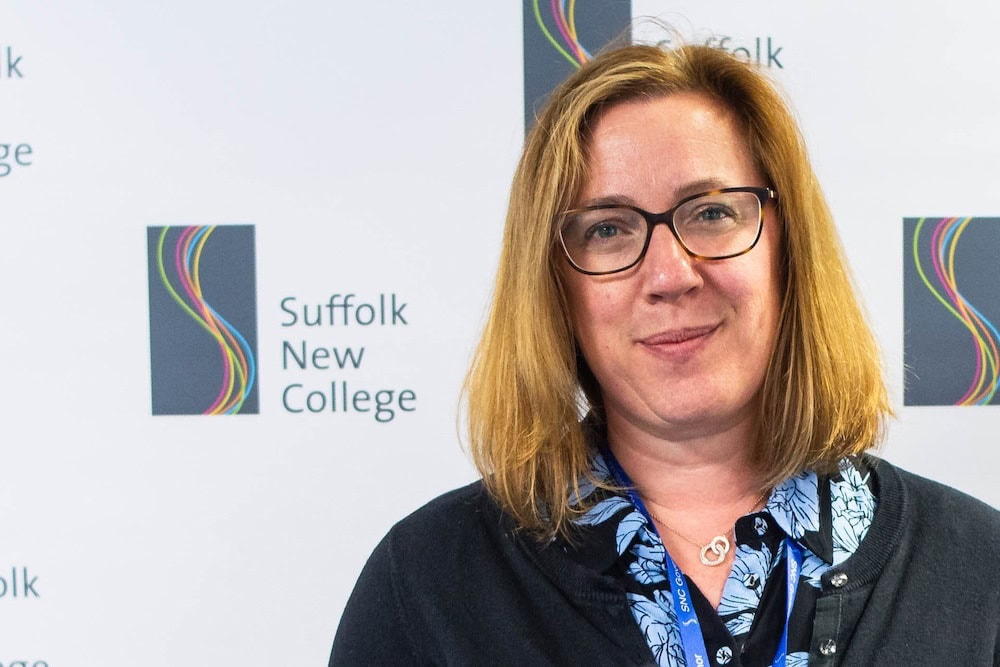Suffolk New College is backing a new government proposal that will ditch additional functional skills qualifications in English and maths for over 19’s studying on apprenticeships.
Employers, colleges and providers will now be given flexibility to decide whether adult apprentices will need to complete a level 2 English and maths functional skills qualification – equivalent to GCSE – in order to complete their apprenticeship.
In addition to this, learners on some pathways where there are national skills shortages such as health and sustainable programmes, can now be fast-tracked and complete an apprenticeship in eight months as opposed to 12.
The announcement from the Department for Education (DfE) is aimed at overcoming ‘red tape’ and the changes will see ‘10,000 more apprenticeship starts every year’ according to the Education Secretary Bridgette Phillipson.

Alan Pease is the Principal and CEO of Suffolk New College. On this announcement he said: “We very much welcome the news. I believe it will remove barriers for adult learners who will no longer need to take an English and maths qualification as they look to gain more skills via apprenticeships.
“It will give us (as a college) greater flexibility in how we deliver adult numeracy and literacy skills, which will remain an important part of any apprenticeship programme.’
“We have reacted quickly to the news by creating information for all employers to help explain the changes that is being sent out now – but we would urge local businesses who work with us (and businesses who are looking to work with us) to reach out to us for further bespoke support.
“Currently Suffolk New College has 47 adult apprentices, whom under the old rules, were required to complete an English and/or maths qualification (that equates to 65 entries as 18 of our adult apprentices are doing English and maths), and we will engage with these apprentices and their employers to navigate our way through this new process.”
“Looking ahead, we hope the DfE will take this a step further and introduce a similar policy around young people where they trust colleges and providers to embed numeracy and literacy skills within a vocational context as part of their qualifications, as it is something that we do very well.”
As regards to some pathway completion times being reduced, Mr Pease said: “In terms of some qualification timescales with apprenticeships now taking eight months as opposed to 12, we also welcome that news.
“We think it will be successful moving forward – and we are hopeful that other areas will have greater flexibility in the future. I believe it will enable us to better meet the needs of our employers across the board, but particularly on large infrastructure projects such as Sizewell C.”

Sarah Hancock, HR Director, Sizewell C, said: “Sizewell C presents a once-in-a-generation apprenticeship opportunity for this area. At least 540 of the 1,500 apprenticeships we’re offering over the construction period will come from Suffolk. These are life-changing opportunities, providing hundreds of people the chance to gain new skills and find opportunities to build careers right here in Suffolk.
“This is about investing in a pipeline of new talent who will not only help to build and operate Sizewell C, but who will support the UK’s future nuclear ambitions too. These people will be the next generation of Britain’s skilled nuclear workforce.”
The news broke during National Apprenticeship Week, a campaign that aims to highlight the importance of these qualifications.
To help promote this annual event, Suffolk New College hosted their annual apprenticeship awards night at Chefs’ Whites in Ipswich where nine learners scooped awards in subject areas that ranged from accounting to agriculture.
Out of those winners, the Suffolk New College Executive Team crowned an overall champion – and this title went to Frederick Klingsick who works for the Ipswich based company called ST Accountancy Services Ltd.
